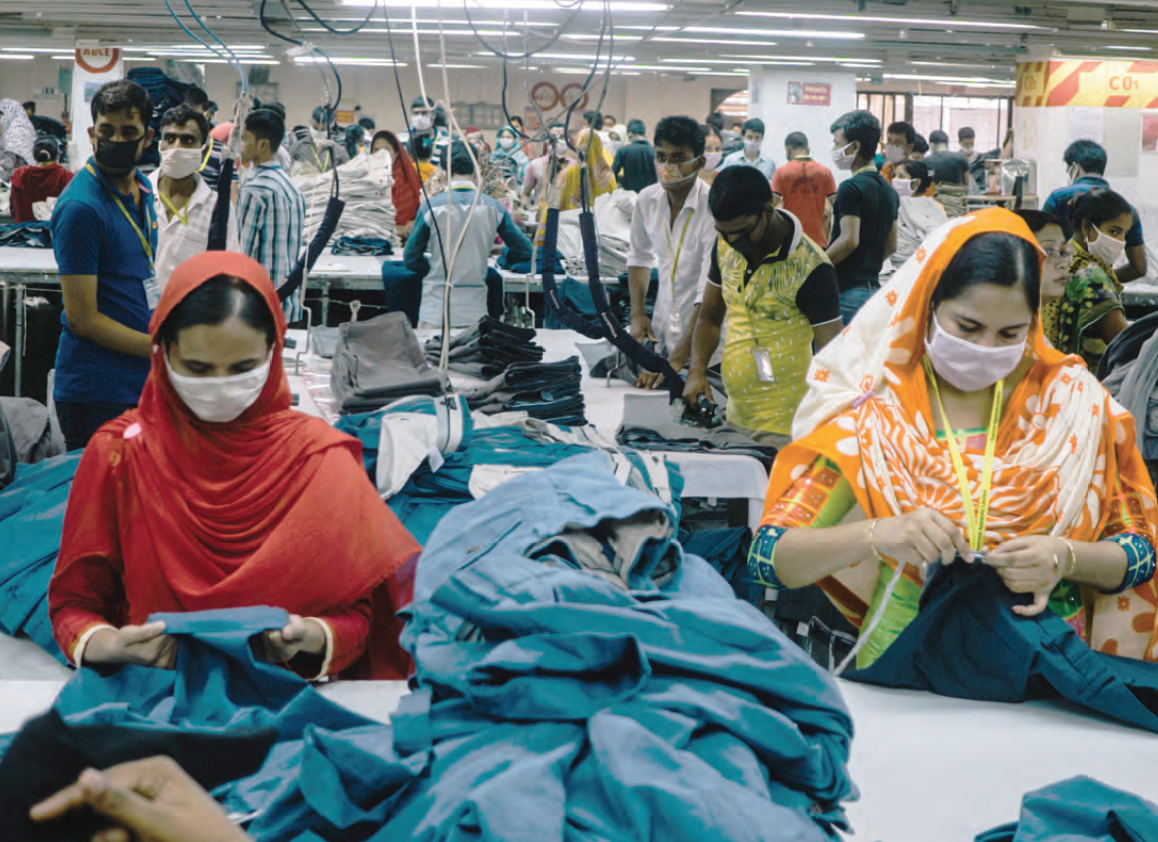
When the Rana Plaza building collapsed in Dhaka, Bangladesh on April 24, 2013, the world took notice. The deaths of more than 1,000 garment workers — and the images of a crumbling factory — immediately focused the attention of the apparel industry, the news media, advocacy organizations, and consumers around the globe on the unsafe working conditions faced by women and men making clothing in Bangladesh.
No less deserving of widespread public attention is the ongoing problem of poverty wages among garment workers in Bangladesh today.
Although the issue of low wages is often out of the public eye, the findings of this report make tangible the urgent need for progress on wages in Bangladesh. Across all 18 factories studied for this report, the Fair Labor Association (FLA) found that not a single garment worker among the more than 6,000 whose wages were studied was earning income even close to a living wage, measured against any living wage benchmark. The average worker would need an 80 percent pay raise to begin earning wages equal to even the most conservative living wage benchmark under consideration in this report.
When the FLA began studying worker compensation globally in 2015, researchers found that garment workers in Bangladesh were achieving the lowest purchasing power of all the 21 countries studied at that time, and that the minimum wage in Bangladesh fell below the World Bank Poverty Line.
For this reason, the FLA notes that sustainable wage reform in Bangladesh must include meaningful negotiations at the national level, with full representation of the views of workers and unions. Current union demands for a new minimum wage would raise wages in Bangladesh to more than twice the current minimum. At the same time, buyers and suppliers need not wait on government action to begin working collaboratively on how to support higher wages for workers whose needs are not being met right now.
The FLA report found that in Bangladesh workers were earning higher wages in factories where assessors also found code-compliant programs for ensuring worker representation and production planning that does not rely on overtime. These correlations suggest that when brands and suppliers prioritize improving workplace conditions related to freedom of association and responsible planning their efforts may also support higher wages overall.